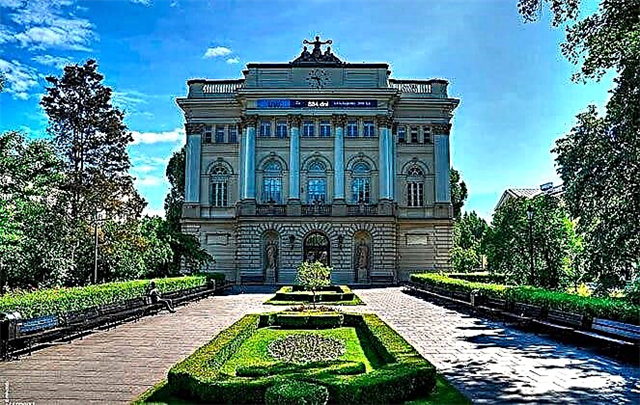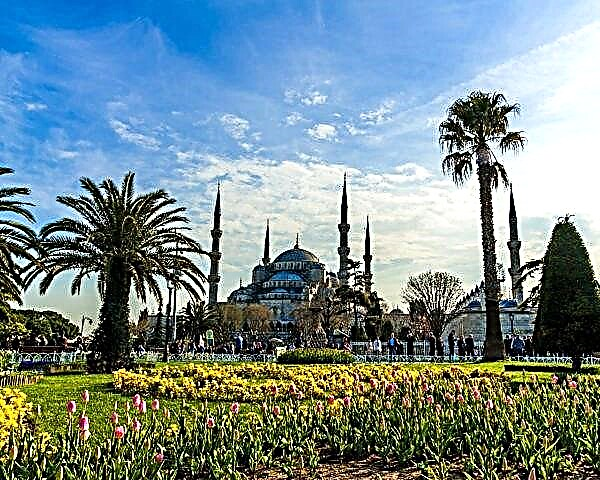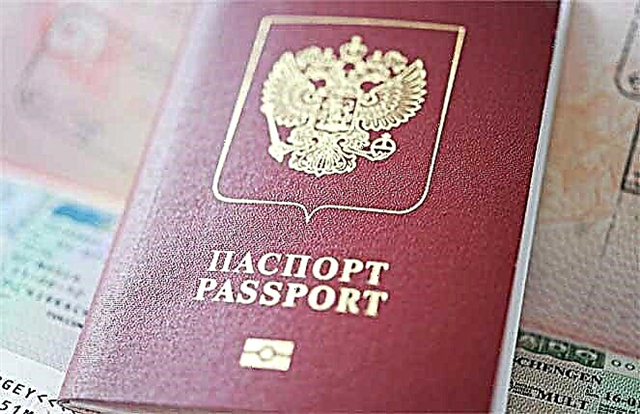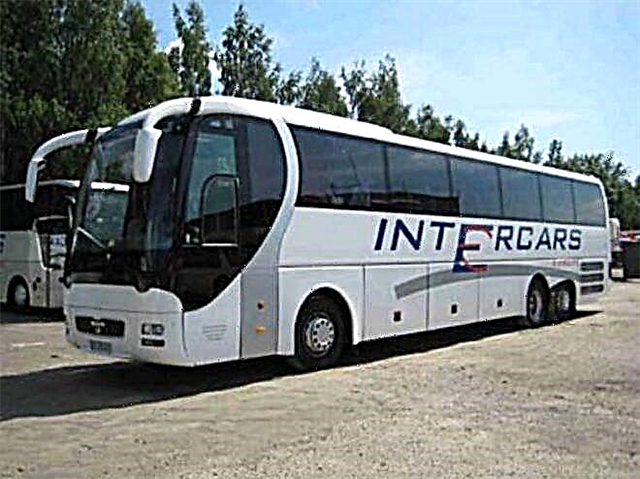Police schools in Poland for foreigners in 2021 are a good way to find a job after graduation in accordance with the acquired specialty. Upon admission to educational institutions of this category, you receive a number of advantages, the main of which is obtaining the legal right to stay in the country, as well as mastering a specialty that is relevant for a particular region.

What is a police school and how is it different
Szkoła policealna (translated from Polish as "post-secondary school") is an educational institution that provides an opportunity to obtain professional education, being an intermediate link between secondary and higher education. If we look at it in a more familiar format for us, then this educational institution is somewhat reminiscent of a technical school or college.
The article “Features of the Polish educational system” will provide detailed information about the education system in Poland.
Police schools train mainly specialists in the technical sector or the service sector.
The training system in them assumes the maximum number of practical lessons with a small amount of theory, and the subjects that are not related to the chosen type of activity are given a minimum of attention.
Training lasts on average 1 or 2 years, depending on the specialization. At the same time, anyone between the ages of 18 and 60 can study. Upon graduation, graduates in one hundred percent of cases get a job in their specialty.
The opening of police schools in Warsaw, Wroclaw and Lodz is explained by the fact that the Polish labor market is oversaturated with graduates of humanitarian universities, while the country, which is now actively developing, is experiencing a shortage of technical workers.

However, Poles are reluctant to go to study in these educational institutions, choosing for themselves more prestigious specialties: management, law, journalism and others, which are highly paid.
Therefore, the country's leadership decided to invite foreigners to study, who will subsequently be provided with jobs and are motivated by the possibility of further residence in the country. The rationality of this decision is obvious, since most of the diplomas of the CIS countries in the Eurozone are not recognized and migrants are required to either confirm their qualifications or enter a police school in order to master a new profession.
Take a sociological survey!
Directions of training and specialization of the polysemy schools
The most popular among applicants are the following specialties:
- system administrator - deals with the process of setting up computer systems, creating databases. The term of study is 2 years;
- labor protection and environmental protection specialist - monitors the safety of work at enterprises. The training lasts 1.5 years;
- administrator for servicing seaports and terminals. The term of study is 2 years;
- specialist in the installation and configuration of telecommunications equipment. Training lasts 2 years;
- administrator, manager of beauty salons, SPA centers. Study lasts 1 year;
- manicurist, hairdresser, make-up artist, cosmetologist for beauty salons. Training lasts 1 year;
- massage therapist, orthopedist, physiotherapist for medical procedures. Education can be obtained in 1 year;
- dental technician for computer design and manufacturing of crowns using the CAD / CAM system;
- dental assistant (responsible for materials and equipment for treatment). The training lasts 1 year;
- medical guardian, assistant (for people with disabilities);
- child educator;
- specialist in delivery and forwarding services;
- travel agent, rural tourism manager;
- restaurant business worker (cook, pastry chef, bartender).
A complete list of areas of professional training is available on the schools' websites. Some educational institutions provide training in many different specialties, and some specialize in only 1-2 categories, for example, medicine, IT technologies.
Which police school is better to choose
Since police schools are present in all large cities of the country, have a similar list of specialties and approximately the same tuition fees, you should focus on the city in which you want to live in the future or continue your studies, and choose an educational institution there.
Warsaw
The capital of Poland has the largest number of various schools, and, consequently, areas for training specialists. In addition, upon graduation, it will be possible to choose a suitable place of work from a huge list of offered vacancies.
| № | School name | Description | Address |
|---|---|---|---|
| 1. | Police School "Cosinus" | the bottom of the most popular and oldest police schools with a large number of referrals and branches around the country, mostly free. | 00-842 Warszawa, ul. Łucka 13 Wola budynek Cosinus, Tel: 22 620 04 91 |
| 2. | GoWork.pl | The school has several free specialties and low prices for paid directions. | 00-680 Warszawa, ul. Żurawia 47/49 Tel: 797-898-767 |
| 3. | Centrum edukaco note NOVA | The school has 21 offices in Poland, conducts Polish language courses and trains students in dozens of specialties. | Widok 8, 00-023 Warszawa tel .: (22) 299 55 43 |
| 4. | Szkola sluzb Medycznych COLLEGIUM | A medical school that specializes in the training of specialists exclusively in the medical sector | ul. Stawki 10, 00-193 Warszawa tel .: +48228496302 |
Wroclaw
There are many higher educational institutions in the city. At the same time, the list of police schools is also quite impressive, since many well-known schools in Poland have branches in this city.
| № | School name | Description | Address |
|---|---|---|---|
| 1. | TEB Edukacja | Free program for foreigners in specialties such as medicine, design and administration | ul. Wagonowa 12, 53-609 Wrocław, Tel: 71 355 56 72 |
| 2. | Szkola KADRA | The priority of training in the direction of "Medicine". Free referrals are available. Training offered in English | ul. Gabrieli Zapolskiej 1 (I piętro) 50-032 Wrocław tel. : 71 341 07 68 |
| 3. | PLUS Edukacja | There are representative offices of the school in many cities, but in Wroclaw there are some free directions. | pl. Solidarności 1/3/5 pok. 231, 53-661 Wrocław tel. 71 727 50 32, |
Krakow
Apart from its tourist attraction, the city is also known as the "Polish Silicon Valley". It brings together most of the IT and programming workers. There are many offices of large IT companies here.
| № | School name | Description | Address |
|---|---|---|---|
| 1. | GLOKER | One of the popular schools located in the center of Krakow, where there is free training and partly funding in the IT field. | ul. Szlak 32/1, 31-153 Kraków tel / fax: 12 632 62 03 |
| 2. | ATUT | An installment payment program is provided. | ul. Sławkowska 1, II piętro 31-014 Kraków, Tel: 12 307 20 85 |
| 3. | Centrum Nauki i Biznesu ”Żak” | About 100 branches in Poland, different educational programs and training levels | ul. Batorego 25 Kraków Telefon: 12 292-62-94 |
Poznan
Previously, this city was practically not popular with foreigners. But now the situation has changed, and many branches of police schools have appeared here.
| № | School name | Description | Address |
|---|---|---|---|
| 1. | Cosinus | One of the most popular and oldest police schools, there are many departments and different specialties. | 61-807 Poznań, ul. Św. Marcin 66/72 (I piętro), Tel: 61 851 96 31 |
| 2. | PLUS Edukacja | A popular educational institution in Wroclaw with a branch in Poznan. The advantage of this school is that there are many free referrals. | pl. 71 727 50 32, |
| 3. | Szkoła Policealna i LO EDICUS | All directions are absolutely free, although their number is small | 61-829 Poznań, ul. Podgórna 3/1 |
Basic rules for admission to police schools: what you need to know
Education in police schools has a number of advantages that open up wide opportunities for further self-realization:
- obtaining a diploma, which is recognized in all countries of the Eurozone, provides excellent opportunities for building a career;
- mastering a profession that is in demand in the state at a given time, makes it possible to immediately get a job after graduation;
- the possibility of raising the level of education of young people planning to live and work in the European Union, as well as admission to a higher educational institution;
- legal stay in Poland for 1 year or more, the possibility of traveling to other EU countries up to 3 months in half a year;
- the possibility of trouble-free travel abroad and legal work in parallel with studies;
- all students have some benefits, like university students, for example a 50% discount on public transport. They receive a student ticket (legitymacja szkoły policealnej), with which they purchase discounted travel passes.
Conditions for admission and study at a police school
Admission to a police school is possible twice a year - at the beginning of the academic year (in September) and after the end of the first semester at the end of February. At the end of each semester, students undergo certification in specialized subjects.
The cost of training depends on the chosen course, the specific school and the region of Poland in which it is located. In most cases, education is paid, but the prices for foreigners are very affordable. Many educational programs and courses are generally free and paid for by the Polish state, especially in highly demanded areas.
For paid specialties, the average cost of training is PLN 100-200 per month, which allows a working student to pay for the course on his own.
Students are allowed to study and work in parallel or earn extra money. The schools provide for full-time (day), evening, as well as the most convenient correspondence form of education for those wishing to work.
Daytime classes usually run from 9:00 am to 4:00 pm. For correspondence students, classes are held weekly on weekends or once every 2 weeks. For missing more than 50% of classes, you will have to pay a fine, the amount of which is equal to the tuition fee.

Not going to school at all will not work: the migration service can easily cancel your visa due to misuse.
The main requirement for those wishing to get a profession is the availability of a completed secondary education. In some schools, it is also necessary to pass the Polish language proficiency test. At the same time, on the basis of many schools there are courses where you can learn Polish or improve your knowledge. But since all subjects are taught exclusively in Polish, mastering it at least at an elementary level is a good start before starting your studies.
Documents required for admission
Documents for admission to the police school can be submitted independently or with the help of a proxy (with a power of attorney drawn up in Polish). It is better to submit documents in the summer, since the educational process begins in September.
Upon admission in 2021, the school administration should provide:
- copies of internal passport and international passport;
- a medical certificate drawn up in accordance with the 086 form;
- 2 photographs 3.5 x 4.5 cm;
- secondary education certificate.
It is better to immediately translate all documents into Polish, although some educational institutions accept school certificates issued in Russia, Belarus, Ukraine, without translation.
After submitting all the papers and signing the study agreement, the student is issued an oswidczenia - a certificate of admission to a police institution. It, along with other documents, should be submitted to the Consulate of Poland in your country or the visa center for visa processing. After reviewing the documents, the student is issued a category D national visa for a period of 1 year.
The advantages of obtaining a study visa are obvious: the possibility of legal stay in the Republic of Poland and training in the chosen profession. Sometimes consular officials also require you to provide a receipt confirming the payment of the first semester of study.
You can read more about the procedure for obtaining an entry permit in the article "Study visa to Poland".
Possibility to receive a Residence Card upon graduation from the Police School
Foreign students who study at the police educational institutions of Poland have the right to receive a Residence Card - a document granting a residence permit (residence permit) in this country. Receiving a residence card for a foreigner enables a visa-free entry and stay in the country for more than 90 days a year, as well as the ability to travel to other countries of the Schengen zone.
To issue a Residence Card, you must submit the following documents:
- completed personal questionnaire (wniosek);
- a document confirming the availability of housing (umowa naimu), in some cases registration (meldunek);
- an agreement with a police institution;
- an extract from the bank on the availability of funds on the account necessary for living. In case of paid tuition at school and renting an apartment, this amount is calculated as follows: the cost of tuition per year + the cost of renting housing per year + 800 PLN per month (means of living).
- medical insurance policy.
For more details on the document processing procedure, see the article "Living in Poland: who and how can get a residence card in 2021".
Conclusion
Police schools provide an opportunity for migrants from the CIS countries to obtain a diploma of European education and acquire a demanded profession. Studying in them is a good chance for everyone who sees Poland not only as a place for temporary work, but as a country in which they intend to live for a long time with their families.
The flexibility of the educational process allows students to study and work at the same time, and therefore, earn and pay for their studies. At the same time, while studying at school, you can get to know the country better, learn its language, culture, legislation, business specifics, way of life. This will make it possible to more objectively evaluate Poland as a country for moving to permanent residence or simply as a new place of residence.











